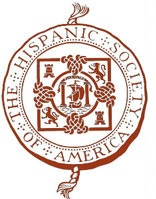
Floridita Owner Says CU Talks Ended
By Maggie Astor
PUBLISHED APRIL 17, 2008

Manhattanville business owner Ramon Diaz says Columbia has cut off negotiations over a possible relocation of Diaz’s restaurant, Floridita, due to overdue rent, real estate tax, and water charges which Diaz disputes.
On Monday, Diaz met with Columbia Vice President for Real Estate Phil Silverman and Assistant Director of Commercial Leasing Jennifer Colon.
The meeting, initiated by Silverman, was held in an effort to resolve an ongoing disagreement in which University officials say Diaz owes over $120,000 in rent, real estate taxes, and water charges on three properties—the main Floridita restaurant, a bakery, and a tapas bar—located on the corner of 125th Street and Broadway.
The meeting consisted of “a lot of niceties,” according to Diaz, but he said Silverman told him that “until we get all this [the rent dispute] clarified, we don’t speak and we don’t negotiate about the future of Floridita.”
In response to a phone call Wednesday afternoon, University spokeswoman La-Verna Fountain said in a voicemail that “we still hope to work things out with Floridita.” She did not confirm or deny the statements Silverman allegedly made Monday, and declined to comment further on the status of negotiations.
The alleged halting of negotiations marks a startling blow to discussions regarding relocating Floridita to a building outside the expansion zone. It was the culmination of a dispute which began on Jan. 22 with a meeting between Diaz and Director of Commercial Leasing Carol Shuchman in which Shuchman first informed Diaz that University records showed him to be in debt. Prior to that meeting, University officials frequently cited interactions with Diaz as a model for negotiations with Manhattanville business owners.
Once Silverman left Monday’s meeting, Diaz said, Colon sat down with Diaz to discuss the debt issue. He said Colon promised to create a spreadsheet detailing the amount Diaz was billed and the amount he paid for each of the 24 months he has owned Floridita, itemized by base rent, real estate taxes, and water charges.
Diaz and Colon hope this spreadsheet will allow both parties to see exactly where the other stands and understand how the confusion arose.
Diaz said Colon acknowledged that Webb & Brooker, which handles invoices for the University, may have misapplied payments Diaz has made over the past two years, resulting, Diaz said, in University records showing overpayments on the bakery and debt on the main restaurant and the tapas bar.
“They’ve applied real estate tax payments to water charges, that kind of nonsense,” Diaz said.
But Fountain wrote in an e-mail in March that any misapplication of payments “has not had a monetary impact on the tenant [Diaz]. All the money the tenant has delivered to the university has been posted to his accounts. He has not received any late charges on one account because the payment was posted into another.”
Silverman said at Monday’s meeting, according to Diaz, that “if we [the University] are wrong, we’ll admit we’re wrong and adjust accordingly.”
Diaz maintains that he is up-to-date on his rent and real estate taxes, and showed Spectator photocopies of canceled checks for every payment he has made since he purchased Floridita from his uncle in May 2006. He mailed copies of the same checks to Silverman on March 6.
Last month, Fountain said the amounts on the canceled checks matched the amounts in Columbia’s records, but that they did not account for real estate taxes, water charges, or outstanding rent on the tapas bar, which is governed by a separate lease from the main restaurant and bakery.
Elsewhere in the neighborhood, negotiations continue to go smoothly with local businesses Dinosaur Bar-B-Que and Alexander Dolls, both of which appear close to finalizing relocation deals with the University.
Columbia owns all but three properties—not including Floridita—within the footprint of the expansion. Obtaining these properties is the last major obstacle Columbia faces in moving forward with its expansion plan. If negotiations fail, the University could ask the state to invoke eminent domain—a course that would bear serious public relations repercussions, and is considered a last resort. Eminent domain can only be invoked by the state if a currently ongoing study by the Empire State Development Corporation deems the area “blighted.” No release date has been given for the study.
University officials have consistently maintained that they want to keep Floridita in the area and accommodate Diaz during the expansion. “We’re genuinely trying to help support his business. We want to see him succeed,” Fountain said in an interview last month. “If we didn’t like Ramon and Floridita so much, it would be different.”
maggie.astor@columbiaspectator.com
TAGS: La Floridita, Ramon Diaz
http://www.columbiaspectator.com/node/30518
NB - Ramon sounds like CU likes El Floridita and you a lot but you know the old Spanish saying about "love" and "self-interest" and how far they go together. Applicable also is an old Cuban saying you should keep in mind, the one about those that to go to bed with vipers usually wake up somewhere deep down a hole.
Also doesn't any one else remembers that Webb & Brooks managed several 202 section 8 based St. Phillips Houses that were repossed by HUD and auctioned off? - JRM








+(3).jpg)



.jpg)
+(3).jpg)


No comments:
Post a Comment